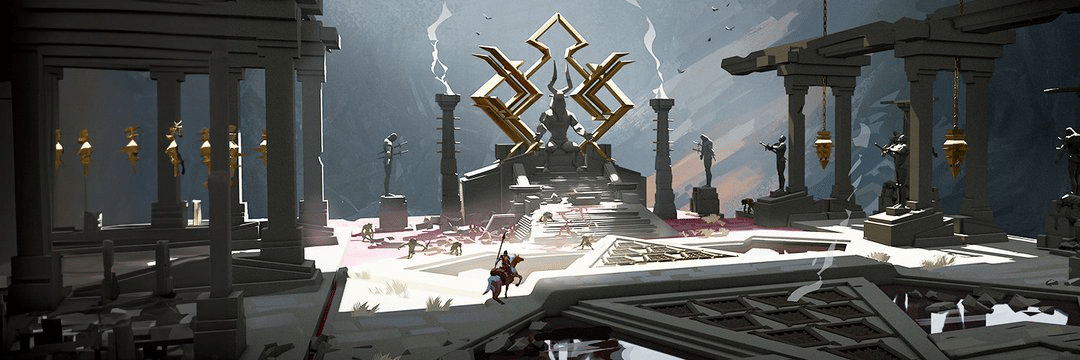Star Trek is often seen as utopian science fiction, but a close look shows that the world of the Federation is not as peaceful and inclusive as it first appears. Following Gene Roddenberry’s dream of a future society lacking prejudice and focused on inclusion, social and legal equality, and egalitarian post-scarcity economics, Trek is well-known for its strong moral compass and its progressive, even leftist values.
It is a world I appreciate and admire, as a die-hard Trekkie who holds many similar commitments. And yet the United Federation of Planets doesn’t truly resolve deep differences and divergent interests among different beings. Rather, it obscures them with cultural uniformity, propounding a quasi secular humanist, even anti-religious philosophy, coupled with a near-complete transcendence of material constraints. This allows the Federation to sidestep the kind of conflicts that real differences, both in beliefs and in material endowments, create. By contrast, the staunchly economic perspective of the Ferengi makes them better able to cope with hard tradeoffs and ensure genuine respect for diversity, despite their many ethical and social deficiencies. Yet the discussion cannot end there; in the final analysis, we need a synthesis that incorporates the moral ideals of the Federation together with the Ferengi’s pragmatism to find a balance of the wisdom embodied in the Star Trek universe.
Beating Phasers Into Plowshares?
It is striking how often the Federation’s supposed embrace of difference is contradicted and challenged by its interactions with alien species. Starfleet’s mission is to “seek out new life and new civilizations”. They believe in the power of dialogue and diplomacy and in the possibility of common understanding. But they find it surprising and challenging when other species don’t want to have anything to do with them or are overtly hostile, despite their best efforts.
In part, this is because the Federation’s social model doesn’t seem genuinely conducive to cooperation within truly radical diversity. Rather, it is about discovering that “we’re really all the same”. In some ways, the Federation isn’t so different from their dreaded enemies, the Borg Collective. Despite an appreciation for the Vulcan credo of “Infinite Diversity in Infinite Combinations,” Federation success seems to heavily rely on people thinking in the same syrupy-sweet, group-oriented way. In the words of Quark, the Federation is the cultural equivalent of a root beer.
Or, as renegade Starfleet officer Michael Eddington puts it to Captain Sisko:
…we’ve left the Federation, and that’s the one thing you can’t accept. Nobody leaves paradise. Everyone should want to be in the Federation. Hell, you even want the Cardassians to join. You’re only sending them replicators because one day they can take their ‘rightful place’ on the Federation Council. You know, in some ways, you’re even worse than the Borg. At least they tell you about their plans for assimilation. You’re more insidious. You assimilate people and they don’t even know it.
This lack of real diversity is embedded in a world that imagines there is no self-interest, no competing goals and values. Though religion’s portrayal throughout Trek is complicated, the Federation appears to be an essentially secular humanist society (in keeping with Gene Roddenberry’s own beliefs). Trek does not portray most ordinary Federation citizens as having faith traditions, and Starfleet officers are generally skeptical of the various super-beings and powerful entities that claim God-like status, from Trelane and Apollo to Landru and Q. While there are a few episodes where powerful metaphysical beings are seen as being above humanity in their wisdom and having much to share, such as the Organians, the Metrons, and the Cytherians, most of these creatures — whether Q, Trelane, Ardra, or others — are understood as fraudulent and psychologically primitive. This limits the potential for the Federation to have genuine humility about their own knowledge and priorities, or learn how to balance competing visions of the good.
Notably, Starfleet is especially unhappy when its officers get involved in the religious beliefs of other cultures, such as Captain Sisko’s eventual embrace of his status as Bajor’s “Emissary of the Prophets”. Irrespective of whether Sisko has firmly held beliefs or the Bajorans have something to teach the Federation, Starfleet’s only concern is that Sisko’s embrace of Bajoran culture will threaten its publicly reasonable neutrally liberal utopia.
Their secularism and cultural commonality greatly diminish any potential conflicts within the Federation between individuals or groups with different beliefs. The Federation also tends to adopt a highly paternalistic, superior attitude to non-Federation cultures’ beliefs or religions. They may be tolerant, but they are far from respectful, if their treatment of the Bajoran culture is anything to go on, or their uprooting of colonists with spiritual beliefs and deep ties to nature, including in a dark twist of irony, Native Americans. It is unsurprising then, that we rarely see disagreements within the Federation, and Trek rarely depicts protracted animosity or competing interests between Federation members.
Rather, Trek hand-waves away problems as easily resolved through democratic deliberation and collective decision-making. In cases where political disagreement is intractable and members wish secession or separatism (such as with the Maquis or the Sevrinites), the Federation often turns authoritarian and hostile. As Captain Kirk’s initial interaction with the Gorn showed, rarely does Starfleet question its own “enterprise” as a quasi-colonizer, (the Prime Directive notwithstanding) and not simply an engine of exploration and cultural interchange.
The absence of trade is one reason why the Federation has difficulty dealing with competing powers such as the Klingons and Romulans. Having —apparently—nothing of value to offer each other, there is little room for a meeting of minds. Insisting that others recognize Federation justice does little to make them do so, and often provokes enmity. When people are divided by resource competition or culture, the answer is not simply to preach inclusivity more loudly, but to incentivize emergent economic and social integration — precisely what markets and liberal individualism provide.
As the economist Ludwig von Mises wrote in Socialism:
The greater productivity of work under the division of labor is a unifying influence. It leads men to regard each other as comrades in a joint struggle for welfare, rather than as competitors in a struggle for existence. It makes friends out of enemies, peace out of war, society out of individuals.
However, in a world of quasi-communist post-scarcity, the institutions of private property and attendant division of labour and trade either no longer exist or are severely restricted. Thus, the incentives that would encourage integration and cooperation are missing. Worse still, the Federation tends to view markets and trade with suspicion, identifying them as domains of selfishness, exploitation, and avarice, making the possibility for even limited exchange less likely.
Because there is no exchange that is at risk from conflict, for the Federation, the costs of conflict are arguably too cheap rather than too expensive. Because replicators create something close to (but not identical with) post-scarcity for most of the Federation, they are able to persist without depending much on trade. Their technology allows the Federation (and other major competitors) to be largely autarkic. Unfortunately, relative self-sufficiency also diminishes their need to become materially intertwined with other cultures. There is little in Trek’s economics that incentivizes peaceful cooperation through exchange. Rather, everyone seems to get what they want and cooperates because they have nothing to fight over. Alternatively, cooperation is simply advantageous or even a necessity, as it was for the Klingons at the Khitomer Accords.
When their preferences aren’t satisfied, the spectre of war quickly returns, and ancient cultures of honor which encourage conflict do not have the problem of material necessity to restrain them. Federation ideals of peace and cooperation are challenged when they have nothing to trade or lack things that would interest other species and political entities despite their differences. This is demonstrated by their failures to make peace with the Sheliac, the Dominion, and others. Crucially, Federation replicators have not eliminated the scarcity of space itself (both regions of the galaxy and specific planets). Conflict over territory is often worsened by ideology, ranging from the Cardassians’ and Romulans’ militaristic nationalism to the Founders’ xenophobic imperialism.
In a subsequent post, I will further explore the role markets play in the Trek universe.
Akiva Malamet is a Contributing Editor at The UnPopulist. He has been published at The UnPopulist, Libertarianism.org, Liberal Currents, Catalyst, and other outlets.
















